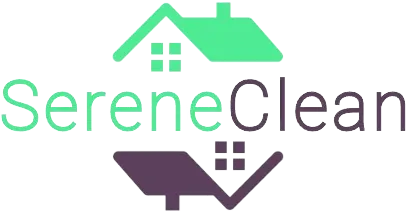
Eco-Friendly Cleaning: A Comprehensive Guide to Greener Living
Introduction: A New Approach to Cleaning
In today’s world, the way we clean our homes is evolving as we become more conscious of our environmental footprint. Traditional cleaning products, once the go-to for households, are now being scrutinized for their harmful effects on both human health and the planet. From indoor air pollution to water contamination, the consequences of using conventional cleaners are far-reaching. As more people strive to live sustainably, eco-friendly cleaning has emerged as a crucial practice for those who want to maintain a spotless home without compromising their commitment to the environment. This guide will delve into the essentials of green cleaning, offering detailed insights and practical steps to help you create a home that’s not only clean but also safe for your family and the planet.
Looking to make your home both clean and green? Book a professional eco-friendly cleaning service with SereneClean today!

The Impact of Conventional Cleaning Products
Conventional cleaning products, commonly found in most households, often contain a mix of chemicals designed to kill germs, remove stains, and eliminate odors. However, these same chemicals can pose significant risks to human health and the environment. Understanding these risks is the first step toward making more informed choices about what you bring into your home.

A bright and modern kitchen with natural light flooding in, featuring a selection of conventional cleaning products displayed on the countertop. The image contrasts the clean, inviting space with the potential hazards of using chemical-laden cleaners, highlighting the need for safer, eco-friendly alternatives.
Understanding the Harm:
Air Quality: Many conventional cleaning products release volatile organic compounds (VOCs) into the air. These VOCs can contribute to indoor air pollution, which is often worse than outdoor air pollution due to the enclosed space. Prolonged exposure to VOCs is linked to respiratory issues, headaches, and even chronic conditions such as asthma.
Water Pollution: When you rinse away cleaners, the chemicals don’t just disappear; they enter the water system. Chlorine, phosphates, and other harmful substances can end up in rivers, lakes, and oceans, where they disrupt ecosystems, harm wildlife, and contribute to the growing problem of water pollution. These chemicals can also end up in our drinking water, posing a risk to human health.
Health Risks: Ingredients like chlorine, ammonia, and phthalates are common in household cleaners and can cause a range of health problems. Chlorine can irritate the respiratory system, especially in individuals with asthma. Ammonia is a powerful irritant that can cause burns and respiratory issues, while phthalates, often found in fragranced products, are linked to hormone disruption and reproductive issues.
Long-Term Effects: Continuous exposure to these chemicals, even in small amounts, can lead to long-term health issues, including neurological damage, cancer, and developmental problems in children. The cumulative effect of regular exposure over time is still not fully understood, but the potential risks are significant enough to warrant caution.

A serene and eco-friendly bathroom setup with plants and natural cleaning products neatly arranged. The scene conveys a sense of tranquility and cleanliness, demonstrating how eco-friendly alternatives can create a safer and more sustainable home environment.
What is Eco-Friendly Cleaning?
Eco-friendly cleaning is about more than just using green products; it’s a holistic approach to maintaining your home that considers the health of your family and the planet. This method prioritizes natural ingredients, reduces waste, and focuses on sustainable practices that minimize your environmental footprint.
Make your home a healthier place to live—book an eco-friendly cleaning service with SereneClean today!
Core Principles of Green Cleaning:
Natural Ingredients: The foundation of eco-friendly cleaning is the use of natural, biodegradable ingredients that are free from harmful chemicals. These ingredients, such as vinegar, baking soda, and essential oils, are effective at cleaning and disinfecting without posing a risk to your health or the environment.
Waste Reduction: Green cleaning also involves reducing waste. This means opting for products with minimal or recyclable packaging and choosing reusable cleaning tools over disposable ones. By reducing waste, you not only minimize your environmental impact but also often save money in the long run.
Energy Efficiency: Eco-friendly cleaning practices also emphasize energy efficiency. This includes using cold water for cleaning tasks to save energy, choosing energy-efficient appliances, and minimizing the use of high-energy tools like dryers and steam cleaners.
Sustainable Sourcing: Whenever possible, choose products and tools made from sustainably sourced materials. This could include items made from recycled materials or products that are certified by environmental organizations like the EPA’s Safer Choice program.
Making the Switch: Choosing Green Cleaning Products
Switching to eco-friendly cleaning products might seem daunting at first, but with the growing market for green alternatives, it’s easier than ever. These products offer a safer, more sustainable way to keep your home clean, without sacrificing effectiveness.
How to Choose:
Read the Labels: When shopping for cleaning products, it’s crucial to read the labels carefully. Look for certifications such as “biodegradable,” “non-toxic,” “plant-based,” or “cruelty-free.” These labels indicate that the product is safer for the environment and for your home.
Understand the Ingredients: Familiarize yourself with the ingredients listed on the labels. Avoid products that contain chlorine, ammonia, phthalates, triclosan, or artificial fragrances. Instead, opt for products with ingredients like citric acid, hydrogen peroxide, and plant-based surfactants, which are effective yet safe.
Research Brands: Not all “green” brands are created equal. Some companies use greenwashing tactics to appear more eco-friendly than they are. Do your research to find brands that are genuinely committed to sustainability. Look for companies that disclose all their ingredients, use recycled packaging, and have third-party certifications.
DIY Solutions: Making your own cleaning solutions is a great way to ensure that what you’re using is truly safe. Common household ingredients like vinegar, baking soda, lemon juice, and essential oils can be used to create powerful cleaners for a fraction of the cost of commercial products. For example, a simple mixture of vinegar and water can be used to clean glass, countertops, and floors, while baking soda is excellent for scrubbing and deodorizing.
Reducing Plastic Waste in Your Cleaning Routine
Plastic waste is one of the most pressing environmental issues today. From the oceans to the landfills, plastic pollution is everywhere. By making conscious choices in your cleaning routine, you can significantly reduce your plastic consumption.
Steps to Reduce Plastic:
Refill and Reuse: One of the easiest ways to reduce plastic waste is by using refillable cleaning bottles. Many stores now offer bulk sections where you can refill your own containers with cleaning products, reducing the need for single-use plastic bottles. Additionally, purchasing products in bulk reduces packaging waste and can be more cost-effective.
Choose Solid Products: Solid cleaning products, such as dish soap bars, laundry bars, and cleaning blocks, are often packaged with minimal or no plastic. These products last longer than their liquid counterparts and are easier to store. They’re also generally free from the preservatives and additives found in liquid products.
Reusable Tools: Swap out disposable cleaning tools for reusable options. Microfiber cloths, which can be washed and reused hundreds of times, are a great alternative to paper towels. Similarly, washable mop heads can replace disposable pads, and reusable sponges made from natural materials can stand in for synthetic ones.
Eco-Friendly Packaging: If you do need to purchase products that come in plastic, look for those packaged in recycled plastic or bioplastics, which are made from renewable resources and are more sustainable than traditional plastics.
Eco-Friendly Cleaning Practices
Eco-friendly cleaning isn’t just about the products you use; it’s also about how you use them. Adopting green cleaning practices can reduce your energy consumption, lower your water usage, and create a healthier home environment.
Sustainable Cleaning Habits:
Cold Water Cleaning: Whenever possible, use cold water for cleaning tasks, such as washing clothes and scrubbing surfaces. Hot water requires more energy to produce, and in many cases, cold water is just as effective for cleaning, especially when combined with the right products.
Steam Cleaning: Steam cleaners are a powerful, chemical-free way to clean and sanitize surfaces. They use just water and heat to kill bacteria, viruses, and mold, making them an excellent choice for eco-conscious households. Steam cleaning is particularly effective on floors, tiles, and upholstery.
Air Drying: Air drying your clothes, linens, and dishes instead of using a dryer can save a significant amount of energy. Not only does this practice reduce your carbon footprint, but it also prolongs the life of your textiles, as air drying is gentler on fabrics than machine drying.
Efficient Appliance Use: Use your appliances wisely. For example, only run the dishwasher or washing machine when you have a full load, and consider using energy-efficient settings. Also, regularly maintain your appliances to ensure they’re running as efficiently as possible.
Natural Deodorizers: Instead of using chemical air fresheners, which often contain harmful VOCs, opt for natural alternatives like baking soda, essential oil diffusers, or fresh flowers. These options not only freshen the air but also avoid introducing toxins into your home environment.
The Benefits of Green Cleaning
Embracing eco-friendly cleaning practices offers numerous benefits that go beyond simply being better for the environment. These practices can lead to a healthier home, cost savings, and a greater sense of well-being.
Why It’s Worth It:
Healthier Home Environment: By eliminating toxic chemicals from your cleaning routine, you create a safer space for you and your family. This is particularly important for households with children, pets, or individuals with allergies or respiratory conditions. Improved indoor air quality, reduced chemical exposure, and fewer allergens are just a few of the health benefits.
Cost Savings: While some eco-friendly products may have a higher upfront cost, they often last longer and are more concentrated than conventional products. Additionally, DIY cleaners made from common household ingredients are significantly cheaper than commercial products. Reusable tools also save money over time, as they don’t need to be replaced as frequently as disposable items.
Environmental Impact: The cumulative impact of switching to eco-friendly cleaning practices can be significant. By reducing your use of harmful chemicals, minimizing plastic waste, and conserving water and energy, you contribute to the protection of the environment. These small changes add up, helping to reduce your overall carbon footprint.
Peace of Mind: Knowing that your cleaning routine is safe for your home and the environment provides peace of mind. You can feel good about the choices you’re making, knowing they align with your values and contribute to a more sustainable future.
Conclusion: Start Your Green Cleaning Journey Today
Transitioning to eco-friendly cleaning doesn’t have to be overwhelming. Whether you start by switching to natural cleaners, reducing plastic waste, or adopting energy-efficient practices, each step you take brings you closer to a healthier home and a cleaner planet. By understanding the impact of conventional products and embracing greener alternatives, you’re not just cleaning your home—you’re contributing to a global effort to protect the environment for future generations.
Ready to make your home sparkle and stay green? Book an eco-friendly cleaning service with SereneClean now!


